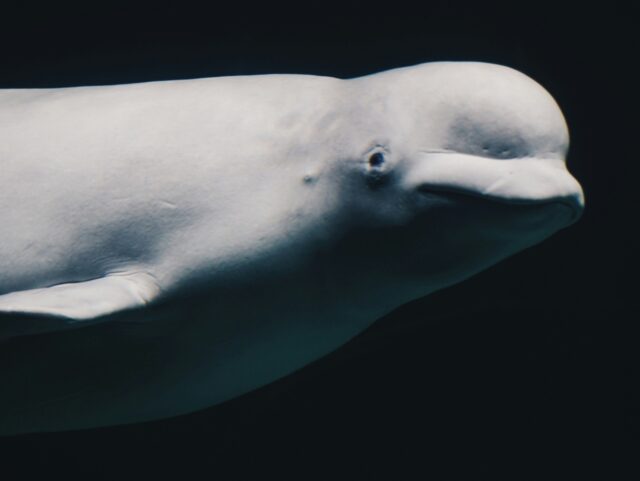Hvaldimir the beluga whale, who became something of a minor celebrity in Norway after being discovered wearing Russian camera equipment in 2019, has been found dead and natural causes are not said to be to blame.
A beluga whale was found dead in Risavika, near, Stavanger Norway at the weekend and has subsequently been identified as ‘Hvaldimir’ — a play on words for Russian President Vladimir Putin — who had been spotted frequently in the area for the past five years.
Hvaldimir had originally caught headlines worldwide after he was spotted in 2019 wearing camera equipment stamped with “Equipment of St Petersburg”. This led to allegations the whale may have been trained by the Russian military to spy on its enemies, although Russia never commented on these claims.
The whale is believed to be relatively young at 15 to 20 years, perhaps half its normal natural life-span, and a charity set up to protect and promote Hvaldimir — One Whale — has alleged the aquatic mammal may not have died of natural causes.
One Whale boss Regina Crosby Haug said, per Norwegian broadcaster NRK: “He was healthy and had no signs of illness. My guess is that he was hit by a boat and died of internal injuries. We have documented that Hvaldimir has swum with boats, and he has previously been hit by a boat”.
A necropsy — the animal equivalent of an autopsy — is likely to follow.
While a Russian spy whale may seem farfetched, the Russian state has used military sealife for decades. As reported in 2023 when a British intelligence digest posited the idea Russia was increasing its number of military dolphins to fight Ukraine in the Black Sea:
…Discussing Russia’s earlier use of dolphins to protect its naval base in the Black Sea from enemy divers, King’s College London academic Professor Andy Lambert said last year: “Dolphins would be ideal for killing human divers … fast, clever, and powerful”. The report also notes that, unlike a warship, dolphins are not magnetic and don’t risk setting off proximity mines.
Russia has stationed its Black Sea fleet in Sevastopol on the Crimean Peninsula for nearly 250 years, even after Crimea became a Ukrainian, post-Soviet territory at the end of the Cold War. Indeed, the return to prominence of military mammals in the Black Sea now has a Cold War flavour to it, as forces on both sides of the Iron Curtain attempted to train whales, dolphins, and seals to perform military tasks.
The MOD notes the Russian navy still uses beluga whales and seals in arctic waters to this day, and a suspected Russian-trained “spy whale” with a camera harness has been turning up in northern European ports in recent months. A 2016 report noting that Russia was seeking to buy five dolphins to reinvigorate its dolphin training programme also published the remarks of an ex-Soviet Colonel who witnessed the training of the animals by Russia during the Cold War.

COMMENTS
Please let us know if you're having issues with commenting.